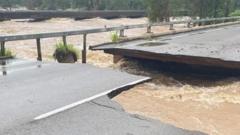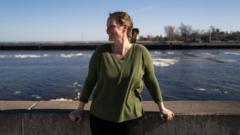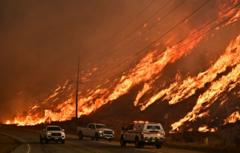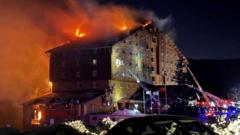In a tragic natural disaster, flash floods in eastern Spain have resulted in at least 51 deaths, prompting a massive emergency response as the region grapples with severe rainfall and its aftermath.
Devastating Flash Floods in Spain Claim Over 50 Lives

Devastating Flash Floods in Spain Claim Over 50 Lives
Severe weather wreaks havoc in eastern Spain, leading to numerous fatalities and widespread destruction.
At least 51 individuals have tragically lost their lives due to flash floods that have ravaged eastern Spain, sweeping away vehicles and transforming village streets into rivers, as confirmed by local authorities. This catastrophic weather event, which struck on Tuesday, was particularly severe in the Valencia region, where emergency services reported widespread devastation.
The intense rainstorms wreaked havoc across southern and eastern parts of Spain, leading to significant disruptions in transportation. A high-speed train carrying nearly 300 passengers derailed near Málaga; fortunately, the rail authorities have indicated that no injuries were reported. Nonetheless, high-speed train services between Valencia and Madrid have been interrupted alongside several regional commuter lines.
The torrents of mud-colored water rushed through streets with terrifying speed, sweeping up cars and debris. Emergency responders, including the police and rescue teams, deployed helicopters to perform daring rescues of individuals trapped in their homes and vehicles. In total, over 1,000 soldiers from Spain’s emergency response units have been sent to assist in the hardest-hit areas.
To streamline these rescue operations, Spain's central government has formed a crisis committee, which will oversee efforts in the wake of the disaster. Weather forecasts predict that the storms could persist through Thursday, further complicating recovery efforts.
This incident is part of a troubling pattern, as Spain has faced similar fall storms in recent years. Furthermore, the country is still reeling from an intense drought earlier this year. Climate scientists are increasingly linking the frequency of such extreme weather events to climate change, raising concerns about future resilience and preparedness.





















